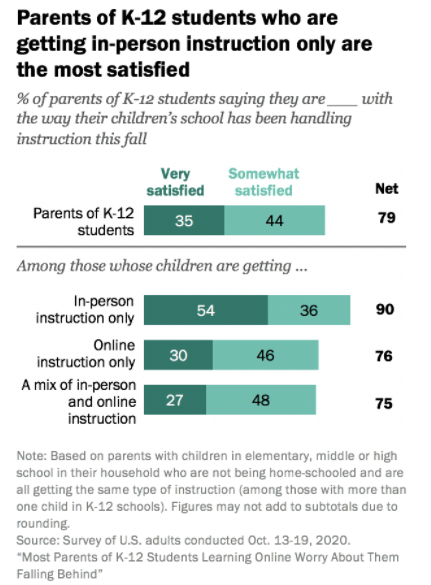Survey Says: Parents of students doing online learning worry about them falling behind
A new survey by the Pew Research Center shows parents of K-12 students are concerned their children will fall behind because of COVID-related disruptions.
The survey was administered to 10,332 U.S. adults, which includes 2,561 parents with children under 18 living at home, between October 13-19, 2020.
This isn’t the first time a poll has captured parental concern about academic readiness, but Pew’s results do show the extent of the worry largely depends on whether children are learning in-person or online.

Parents of K-12 students attending school in-person are more likely to say they are “very satisfied” with “the way their children’s school has been handling instruction this fall” (54 percent), compared with 30 percent of parents whose children are getting online instruction only and 27 percent of parents whose children are getting instruction through a hybrid learning model.
Parents of lower-income students are more likely to say their children are receiving online instruction only compared with their wealthier peers.
When asked whether they were worried about their children falling behind in school, 32 percent of parents whose children are receiving at least some instruction online said they are “very concerned,” compared with 21 percent of parents of students getting only in-person instruction.
Parents of lower-income students are also more likely to say they are “very” or “somewhat” concerned about their children falling behind (72 percent), compared with middle-income parents (63 percent) and upper-income parents (55 percent).
Parents with children getting online instruction only are also more concerned about their children: having too much screen time, maintaining social connections and friendship, and their emotional well-being, compared with parents whose children are getting in-person instruction only or a mix of in-person and online instruction.
You can read additional results here.